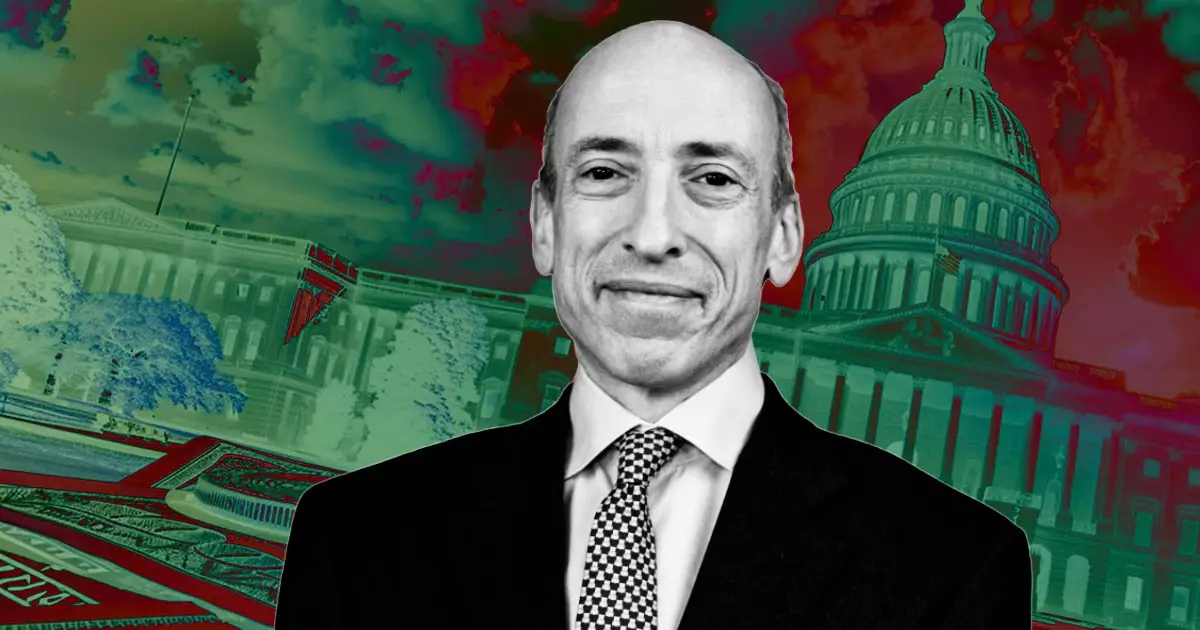Gary Gensler, the Chairman of the US Securities and Exchange Commission (SEC), recently voiced his strong opposition to the Financial Innovation and Technology for the 21st Century (FIT21) Act. Despite the widespread praise the bill has received for bringing regulatory clarity to the crypto industry, Gensler argues that it would actually weaken current consumer protections in the crypto market. Specifically, he warns that the proposed bill would create significant regulatory gaps, potentially putting investors and capital markets at substantial risk. Gensler is particularly concerned about the bill’s potential to bypass securities regulations, allowing investment contract issuers to self-certify their products as decentralized and escape SEC oversight.
While the Biden administration has expressed its opposition to the FIT21 Act, it has also indicated a willingness to collaborate with Congress to establish a comprehensive regulatory framework for digital assets. The White House is committed to ensuring that any regulations put in place build upon existing authorities to strike a balance between innovation and investor protection. Despite harboring concerns about the bill, the White House has clarified that it will not attempt to veto it if it is passed by Congress.
One of the key criticisms leveled against the FIT21 Act is its abandonment of the Howey Test, a crucial method for determining whether an investment qualifies as a security. By deviating from this established standard, the bill opens up the possibility of reduced protections for investment contracts classified as securities. Additionally, the exclusion of crypto asset trading platforms from being categorized as exchanges has raised concerns about potential risks within the market. Gensler and other critics argue that these changes could pose a significant threat to the American capital market and its investors.
In contrast to Gensler’s stance, the FIT21 Act has garnered strong support from various quarters, including the US Congress and the crypto community. Congressman French Hill, the Chairman of the Subcommittee on Digital Assets, Financial Technology, and Inclusion, has lauded the bill for granting the SEC authority over digital assets not covered by the legislation, offering essential securities protections. Leading crypto companies such as Coinbase, Circle, Kraken, and Gemini, along with advocacy group Stand With Crypto, have urged lawmakers to endorse the legislation. The Crypto Council for Innovation (CCI) also voiced its support for the bill, emphasizing the need for regulatory clarity to ensure consumer safety and responsible industry practices.
Implications of the Bill’s Passage
As the US House of Representatives prepares to vote on the FIT21 Act, the outcome of the decision is poised to have far-reaching implications for the crypto industry and capital markets. If the bill is passed, it could fundamentally alter the regulatory landscape for digital assets, potentially reshaping how investments are classified and governed. The bill’s passage would mark a significant milestone in the ongoing efforts to establish a coherent and effective regulatory framework for emerging technologies.
The debate surrounding the FIT21 Act underscores the complex interplay between innovation and regulation in the crypto space. While proponents argue that the legislation will bring much-needed clarity and structure to the industry, critics like Chairman Gensler caution against the potential risks and loopholes it may introduce. As policymakers grapple with the decision of whether to support the bill, the future of digital asset regulation hangs in the balance, with implications that could reverberate throughout the financial landscape.

